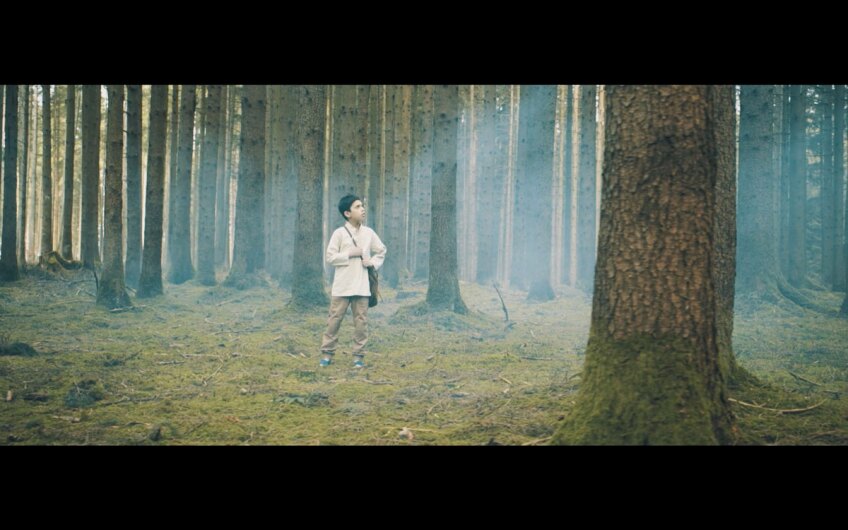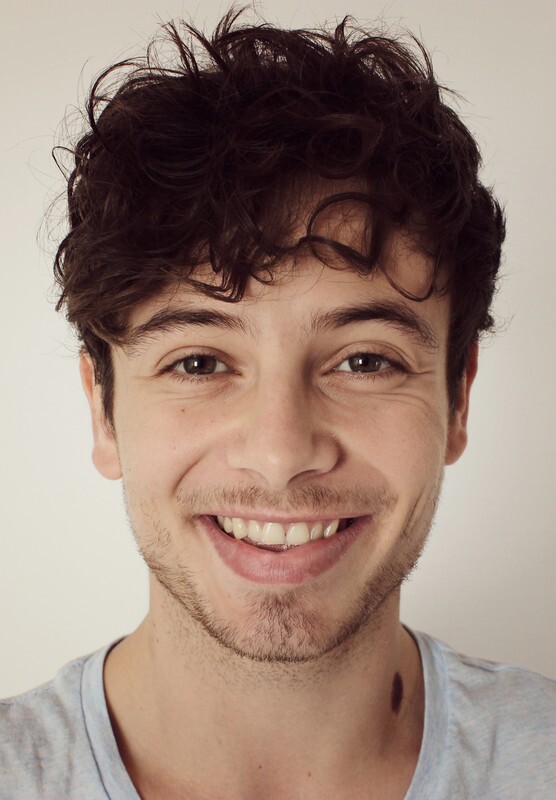Interview with Jeremias Bayerl, Director of The Door to Freedom

"The Door to Freedom" was the recipient of the 2017 Fine Cut Film Festival Student Filmmaker Award. With a focus on the Syrian refuge crisis, director Jeremias Bayerl describes his film as "... a drama ... packed into a fairytale that creates a paradox world that is truly sad."

The Interview:

Do you think filmmaking is important for society?
Jeremias Bayerl: Yes, absolutely. In my view filmmaking is one the unique ways of reaching the inner spaces of a human being. It’s quite similar to music, despite the fact that it adds the aspect of a visual approach to it and therefore leads even more into an absorbing medium. The only ways to affect the world are these two approaches, because they are able to touch us in a very strong and intense way. We certainly have no protection against it. It just affects us. And that’s why it has the power to change things in society.
What do you hope an audience takes away from your film?
JB: In our case the moral of the story, of course. Due to the fact that our film is some sort of bedtime story, we really want to touch the audience and open their eyes concerning the issue of the refugee crisis. I can’t give away the end of the film, but its philosophy behind it should really change people’s view on the tragic movements that are currently going on.
What does having your film play at Cannes mean for a filmmaker?
JB: Being played at the Cannes Film Festival is something very extraordinary for us. To be honest, we still can’t really believe it, it’s so unreal. We are still young film students and are aware of the huge competition out there in the whole world concerning filmmaking. Especially as Europeans, we have a very strong connection to this festival. Geographically, France is not very far away from Austria, but in the means of filmmaking and prestige, it wasn’t supposed to be in a realistic range to reach for us. So this honor we received is even more a dream to us, which came true.
Why did you make this film?
JB: In the first instance, we made this film because we have to end our semester of the studying year with a bigger film project. It’s some kind of final delivery. But furthermore we really wanted to cover a very serious topic with it at the same time. So it was also a very personal wish for us to realize a film project that is not just entertaining, but also morally important for the world.
How do you come up with an idea for a film?
JB: I personally take a lot of time to really come up with an interesting idea for a film. In most cases it’s just the things that happen around me at a certain period of time that make me think of society and the world. I have a very rebellious approach to my own art. The script of “Door To Freedom” was written while the refugee crisis in Europe got at its highest peak. I’m the kind of person who wants to tell serious issues in the world in form of films that don’t just entertain, but also make people think. The devastating war in Syria really got me that time, well, especially the things we were confronted with in Europe (refugees and their stories they had to undergo). It was really inspiring.
What was the biggest obstacle you faced?
JB: The biggest problems we faced were time and resources. We had just a little time window to actually put this story into a film and also struggled with different issues: only one of our actors was a professional and our main character was a child actor, so that was really new and challenging for us. I wouldn’t describe it as an obstacle though, more like an interesting challenge, as I mentioned. I guess we have learned a lot of stuff from that. The other big obstacle was that we depended on was the weather, as the majority of our scenes were shot outside, and the final scene during golden hour. I think I don’t really have to go into further details about that, as you as filmmakers sure know about this issue.
How did you finance your film?
JB: We financed the film with our own money, from our own little student pockets. Sadly we didn’t receive any financial support from the country, state or organizations. So it’s a super low budget project, we had to pay with our own savings. That’s quite tough and limits you concerning the resources you would like to use to make the film even better. So the art was to really focus on the most important things, in my view, the story line.
Why did you want to become a filmmaker?
JB: Because it’s one of my passions and that’s really difficult to ignore, as you know. It further would be the worst thing you could do, not hearing to what your heart says. Because that’s what passion is all about. Listening to your inner thoughts you then want express in your individual way. My other passion is music and I soon realized that film could combine these two worlds, of sound and vision. As I mentioned before they merge into one great path, on which you can make others follow and make them think about the world and its meaning.
What is your next project?
JB: My next project is the final film project in my studies and called “La Famille”, where my task will be the editing. It’s a 25 minute documentary-drama crossover that is set during the first and second world war and deals with the interaction of occupiers (in our case Germans in France) and the inhabitants.
What would you tell an aspiring filmmaker?
JB: My advice would be: It’s all about the story, a good plot that touches the audience. In a world were human beings strive for the perfect digital image, where everything becomes sharper, neater, where everyone strives after the ideal image composition, where everyone can buy a DSLR and make movie with it, it becomes even more important to focus on the things that technology can’t imitate. And that’s a good story line. An honest story doesn’t need perfect images. It doesn’t rely on the technology; it relies on a unique spirit of a human being. And technology will never be able to imitate that.